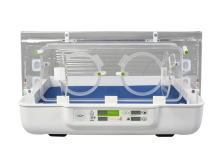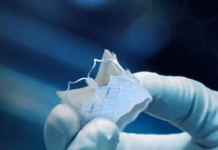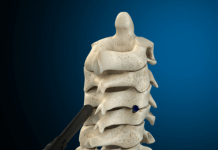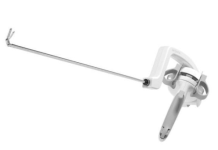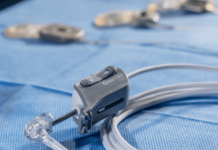Heru Inc. has raised $ 30 million in Series A funding to support the advancement of its artificial intelligence (AI), wearable eye diagnosis and vision correction platform. D1 Capital Partners led the round with the participation of Softbank Ventures Opportunity Fund, Maurice Ferre, Frederic Moll, Krillion Ventures and a consortium of investors with experience in developing, adopting and scaling medical technologies.
Heru was spun off from the Bascom Palmer Eye Institute at the University of Miami in 2018 and has developed autonomous AI-controlled vision diagnosis and augmentation software for commercially available augmented reality headsets (AR). The company completed a $ 2.7 million startup round last year. It licenses the patented technology exclusively from the University of Miami.
“Combined with Heru AI and the power of dozens of patents from the Bascom Palmer Eye Institute, it is now possible to optimize diagnostic care as part of a comprehensive diagnostic strategy through a wearable device,” said Heru founder and CEO Mohamed Abou Shousha.

First offer already on the market
Heru plans to use the new funds over the next few years to offer patients its unique approach to eye care, first with perimetry testing and then with a number of additional features not relevant to commercially available wearable technologies. Future platform enhancements include objective visual field tests, advanced vision corrections, color vision tests, and other comprehensive eye exam capabilities that allow practitioners to use less hardware devices and rely more on smart wearable technology.
John Trefethen, Heru’s Head of Marketing
The company expects new offers to be published steadily, John Trefethen, Herus chief marketing officer, told BioWorld. “This year you will see several additional features including a product with a 510 (k) release.
Heru’s first product, diagnostic software for perimetry tests, was exempted from the FDA as a Class I device in December. It is currently in use in five locations across the United States. “Thousands of exams are being run through this system today,” said Trefethen.
For anyone with an eye exam, perimetry is where you stare at a fixed point in a large metal frame and click a button when they see lightning bolts at the edge of their eyesight. A bad test result can be an early sign of progressive eye diseases like glaucoma.
“Our technology is replacing this large, medical-grade furniture with 7-inch portable technology weighing less than a pound that is just as accurate, and much faster and more patient-compliant,” said Trefethen.
Vision correction
Miami-based Heru also has the rights to a patent that enables a patient to diagnose a patient’s vision problems in real time and make adjustments to correct the vision loss. “For example, if you’ve had a stroke and can’t see the right half of your eyesight, we can detect it on the fly and, if it changes, on-the-fly by learning and using artificial intelligence,” you give an overview of the healthy part Your retina, “explained Trefethen.
The company works with state-of-the-art AR device developers such as Microsoft Corp. and Magic Leap Inc. are working together to realize this vision correction feature.
An estimated 450 million people around the world suffer from visual impairment or illness, many in places where there is no easy access to diagnostic and care facilities. Heru’s ease of use and portability – built-in batteries and 5G connectivity – aims to meet this need.
“The main approach we’re taking is to bring more accessible eye care to the world,” he said.
To achieve this, Heru is focused on both enabling more care by ophthalmologists and expanding the point of care. For example, he noted the Indian Health Service, which is very strong in Indian communities but is often challenged by rural health barriers. With Heru, “the device now goes to them,” said Trefethen.
The company is currently focused on optometry and ophthalmological practices, both in private and retail. In the future, the company also expects recipes for using its technology at home. There is also a strong use case in emergency rooms where ophthalmologists are not always on-site. The technology enables stroke or head trauma patients to have an instant eye test, regardless of whether they are sitting or lying down.
Clinically proven
Herus KI-Test is constantly learning and improving through thousands of eye exams – approximately 300,000 patients pass through the Bascom Palmer Eye Institute each year. The company has completed a clinical study showing that its technology is clinically equivalent to the gold standard Humphrey Visual Field from Carl Zeiss Meditec AG, which uses both Microsoft Hololens and Magic Leap AR / VR devices.
A second study, which is still ongoing, will demonstrate the equivalence of Herus KI to the clinical equivalent of the gold standard, the Swedish interactive threshold algorithm, Trefethen said.
Currently, the perimetry test takes two and a half minutes per eye, which is 35% faster than the gold standard. Clinicians buy the software and pay Heru a small portion of the payment they receive for an exam to gain access to the platform.


